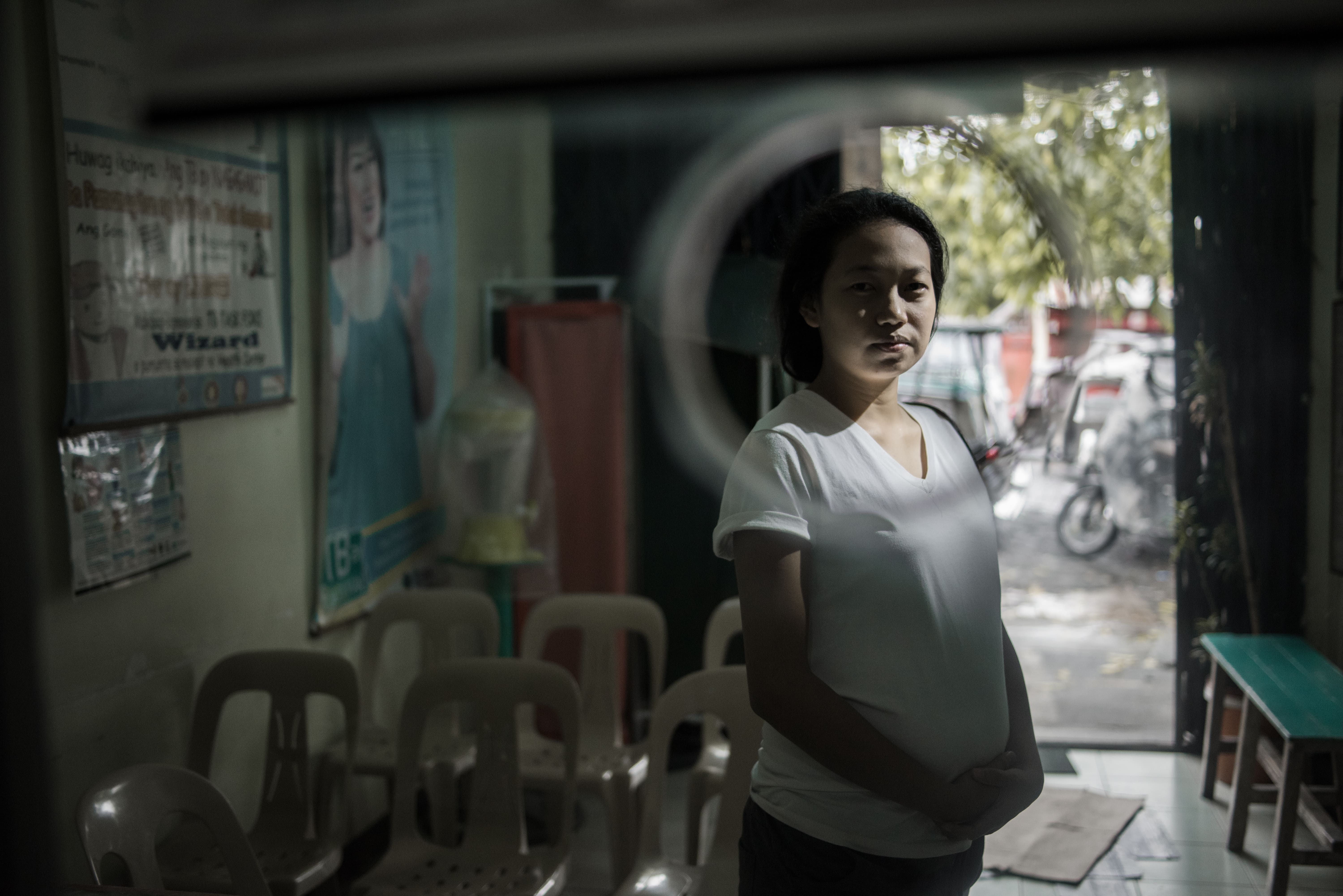Women’s education and empowerment in the Philippines: A community solution
DOI:
https://doi.org/10.21153/thl2022art1650Keywords:
Education, Women's empowerment, Philippines, Leadership, Social workAbstract
The Advocacy on Women’s Education and Empowerment (AWE) Project is a community action program based in the Philippines that was implemented after participation in the 2016 Community Solutions Fellowship for Global Leaders—a professional leadership development program for community leaders across the world that involves a four-month fellowship with a nonprofit organisation or local government agency in the United States. The inspiration for the AWE project was the Girls Getting Ahead in Leadership (GGAL) program of the Women’s Initiative for Self-Empowerment (WISE) in Minnesota. The AWE project empowers young women through a series of capacity building exercises, beginning with personal self-awareness, leadership development, conflict management, peace circles and gender and human rights. This provides opportunities for female social work students and young social workers to reach their full potential as gender and human rights advocates and leaders in the Philippines. This paper aims to highlight the role of social workers in gender and human rights advocacy at the local and international level, details the experiences, lessons and challenges of running a project which builds the capacity of young women, and promotes the role of higher educational institutions in building the skills and competence of future leaders.
Downloads
References
Acebes-Escobal, B.C., Nerida, M.C., Chez, R.A. (2002) Abuse of women and children in a Philippine community. Int J Gynaecol Obstet. 76(2):213-7. doi: 10.1016/s0020-7292(01)00551-3.
Asia Pacific Institute on Gender Violence. (2018). Domestic and Sexual Violence in Filipino Communities. https://www.api-gbv.org/resources/dvfactsheet-filipino/
Asian Development Bank. (2013). Gender Equality in the Labor Market in the Philippines. https://think-asia.org/bitstream/handle/11540/796/gender-equality-labor-market-philippines.pdf?sequence=1
Banun, A. (2016). Human development, disparity and vulnerability: women in South Asia (2016 UNDP Human Development Report Background Paper). United Nations Development Programme. http://hdr.undp.org/sites/default/files/latest_edited_banu_template_gl_1_august.pdf
Bardauskiene, A. (2018). Mckinsey Global Institute Report the Power of Parity: Advancing Women’s Equality in Asia. https://www.mckinsey.com/featured-insights/gender-equality/the-power-of-parity-advancing-womens-equality-in-asia-pacific
Commission on Higher Education. (2015) Memorandum Circular Order 1 Series of 2015. https://ched.gov.ph/wp-content/uploads/2017/10/CMO-no.-01-s.-2015.pdf
Department of Budget and Management-National Economic Development Authority-NCRFW. (2004) Joint Circular. JC 2012-01.pdf (dbm.gov.ph)
Department of Health. (2020). What is Violence Against Women (VAW)? https://www.doh.gov.ph/node/1414
Disaster Philanthropy. (2020). Race and Intersectional Equity Statement. https://disasterphilanthropy.org/about/race-intersectional-equity-statement/
Dominelli, Lena. (2011). Claiming Women’s Places in the World: Social Workers’ Roles in Eradicating Gender Inequalities Globally, in Lynne M. Healy, and Rosemary J. Link (eds), Handbook of International Social Work: Human Rights, Development, and the Global Profession. https://doi.org/10.1093/acprof:oso/9780195333619.003.0009
Howe, B. (2019). A gender-responsive approach to disaster risk reduction (DRR) planning in the agriculture sector Guidance for supporting rural women and men to build resilience in the face of disasters. Food and Agriculture Organization of the United Nations. http://www.fao.org/3/a-i6531e.pdf
International Federation of Social Work. (2014). Global Definition of Social Work. https://www.ifsw.org/what-is-social-work/global-definition-of-social-work/).
Medina, B. (2019). Community Engagement of State Universities and Colleges in The Philippines: Towards Socially and Culturally Responsible Research and Extension Initiatives. International Journal of Advanced Research and Publications. 3(4): 20-25. http://www.ijarp.org/published-research-papers/apr2019/Community-Engagement-Of-State-Universities-And-Colleges-In-The-Philippines-Towards-Socially-And-Culturally-Responsible-Research-And-Extension-Initiatives.pdf
Mohammed, I. (2020). Human Rights and Social Work Values. The New Social Worker. https://www.socialworker.com/feature-articles/practice/human-rights-and-social-work-values/
Mojares, J. & Baconguis, R. (2015). Extension Functions of Higher Educational Institutions. USM R&D Journal. 23. 13-26. Olson-Strom, S., Rao, N. (2020). Higher Education for Women in Asia. In: Sanger, C., Gleason, N. (eds) Diversity and Inclusion
in Global Higher Education. Palgrave Macmillan, Singapore. https://doi.org/10.1007/978-981-15-1628-3_10
Patel, A. (2019). Disaster Management & Women: Perspectives and Practices. Odisha Review: 138-142. http://magazines.odisha.gov.in/Orissareview/2019/Jun-July/engpdf/Disaster-Management-%20Women-138-142.pdf
Philippine Commission on Women. (2020). Violence Against Women. https://pcw.gov.ph/violence-against-women/
Pittman, S., Sugawara, C.L., Rodgers, M.E., & Bediako, A. (2015). Social Workers in International Relief and Development: A Natural Fit. Interdisciplinary Journal of Best Practices in Global Development. 1(1). https://knowledge.e.southern.edu/ijbpgd/vol1/iss1/3
Pulmano, R. (2016). Implementation of the Gender and Development Program of State Universities and Colleges in Region III: An Evaluation. Tarlac City Philippines. International Journal of Education and Research. 4(5) https://www.ijern.com/journal/2016/May2016/15.pdf
Sharma, P. & Sharma, M. (2021). Role of Higher Education in Women Empowerment. Psychology and Education Journal 58(2): 9056 – 9062.
Stoeker, S. (2010). Achieving Gender Equality, Women’s Empowerment and Strengthening Development Cooperation. UN Department of Economic and Social Affairs Office for ECOSOC Support and Coordination. https://www.un.org/en/ecosoc/docs/pdfs/1050143_(e)_(desa)dialogues_ecosoc_achieving_gender_equality_women_empowerment.pdf
Strachan, G., Adikaram, A., & Kailasapathy, P. (2015). Gender (In)Equality in South Asia: Problems, Prospects and Pathways. South Asian Journal of Human Resources Management. 2. 1-11. https://www.researchgate.net/publication/277950280_Gender_InEquality_in_South_Asia_Problems_Prospects_and_Pathways
UNICEF. (2020). Gender equality. https://www.unicef.org/rosa/what-we-do/gender-equality
UNESCO. (2014). Monitoring of the Implementation of the Convention and Recommendation against Discrimination in Education (8th Consultation). https://unesdoc.unesco.org/ark:/48223/pf0000227859
Vasudha, G. (2008). Role of Women in Disaster Management: An Analytical Study with Reference to Indian Society. The 14th World Conference on Earthquake Engineering. https://www.iitk.ac.in/nicee/wcee/article/14_10-0049.PDF







